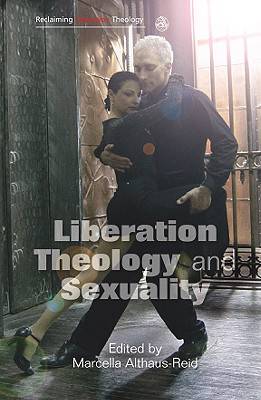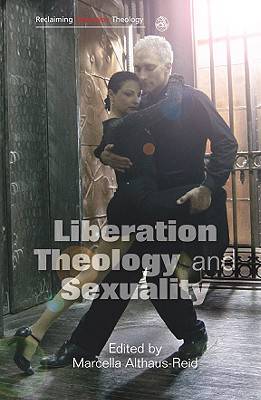
Door een staking bij bpost kan je online bestelling op dit moment iets langer onderweg zijn dan voorzien. Dringend iets nodig? Onze winkels ontvangen jou met open armen!
- Afhalen na 1 uur in een winkel met voorraad
- Gratis thuislevering in België vanaf € 30
- Ruim aanbod met 7 miljoen producten
Door een staking bij bpost kan je online bestelling op dit moment iets langer onderweg zijn dan voorzien. Dringend iets nodig? Onze winkels ontvangen jou met open armen!
- Afhalen na 1 uur in een winkel met voorraad
- Gratis thuislevering in België vanaf € 30
- Ruim aanbod met 7 miljoen producten
Zoeken
Liberation Theology and Sexuality Second Edition
€ 62,45
+ 124 punten
Omschrijving
Does theology liberate only bodies with official desires, well-scrubbed skin, and sober clothing? Might it bring good news to the rest to madwomen of all sexes, dancers in smoky bars, devotees of disreputable saints? Marcella Altahus-Reid insisted on asking such questions sharply, unflinchingly, but with unfeigned joy. She shows us still how to answer them. --Mark D. Jordan, Richard Reinhold Niebuhr Professor of Divinity, Harvard Divinity School. Marcella Althaus-Reid has drawn together a number of the most exciting Liberation Theologians currently working in Latin America and beyond, whose work offers a wider and more complex critique of reality which is prepared to engage with issues of sexuality, race, gender, culture, globalization and new forms of popular piety. The contributors show that Christianity in Latin America cannot avoid taking into account and engaging with issues concerning sexuality and poverty when reflecting on the construction of Christian faith and identity. They represent Liberation Theology in motion: dynamic, unsettling, still struggling with orthodoxy while engaging in the broad struggle for justice that includes sexual justice.
Specificaties
Betrokkenen
- Uitgeverij:
Inhoud
- Aantal bladzijden:
- 208
- Taal:
- Engels
- Reeks:
Eigenschappen
- Productcode (EAN):
- 9780334041856
- Verschijningsdatum:
- 30/09/2009
- Uitvoering:
- Paperback
- Formaat:
- Trade paperback (VS)
- Afmetingen:
- 152 mm x 231 mm
- Gewicht:
- 249 g

Alleen bij Standaard Boekhandel
+ 124 punten op je klantenkaart van Standaard Boekhandel
Beoordelingen
We publiceren alleen reviews die voldoen aan de voorwaarden voor reviews. Bekijk onze voorwaarden voor reviews.










